If Youve Had a Rabies Vaccination and Get Bitten Again Do You Need Another Sho
The CDC Says Don't Do This Within 2 Weeks of Your COVID Vaccine
You shouldn't do this before or after getting vaccinated for the coronavirus.
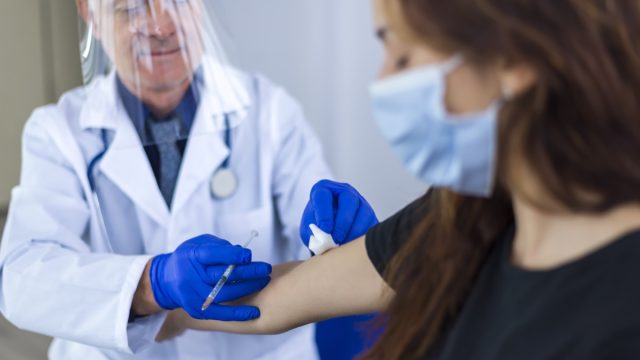
More and more people are getting the coronavirus vaccine as states widen their eligibility requirements. If your appointment is on the horizon, there are some things you need to know in order to prepare. With limited data available on what could affect the efficacy of the COVID vaccines, many health experts have recommend extra precautions, like not taking certain OTC medicines before the shot. Even the Centers for Disease Control and Prevention (CDC) has some stipulations on what you shouldn't do within two weeks of getting your COVID vaccine. Read on to find out what you should avoid before and after vaccination, and for things to steer clear of, Don't Do This Until a Month After Your COVID Vaccine, Experts Warn.
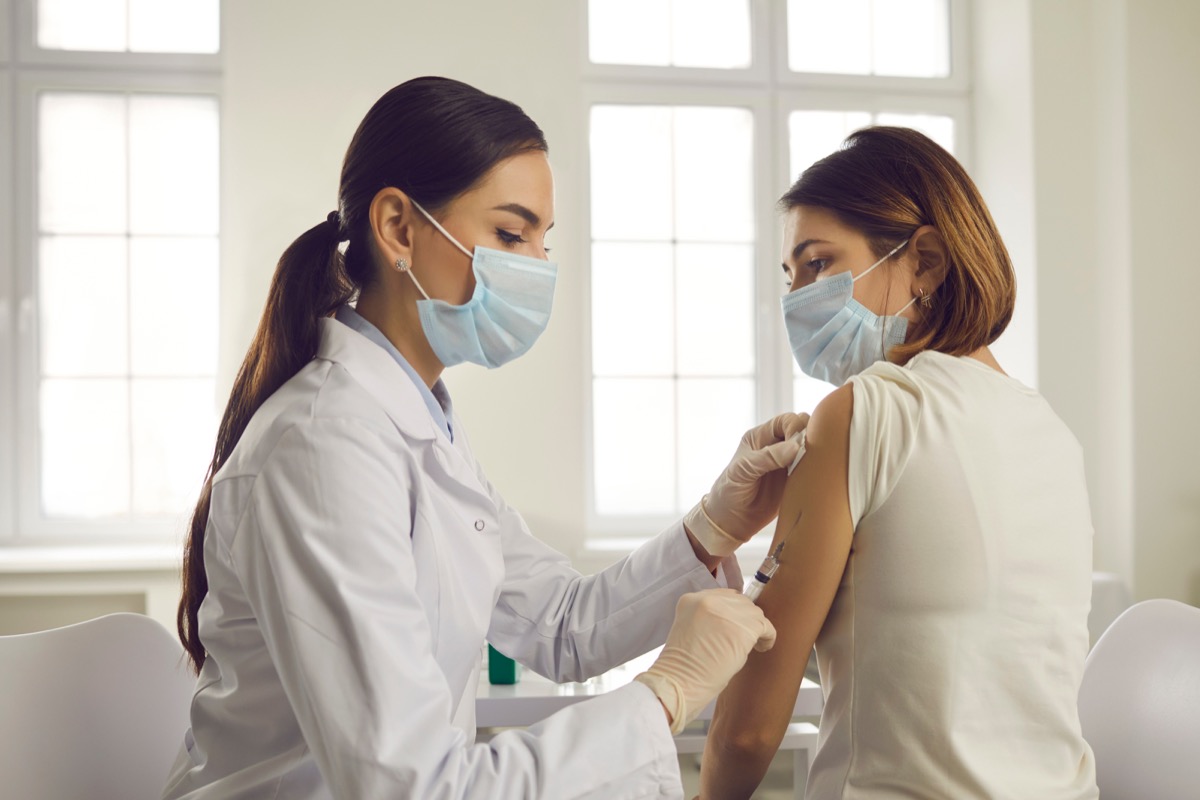
When it comes to getting vaccinated, don't make it a one-stop shop. According to the CDC, your COVID vaccine should be administered alone. That means you need to "wait at least 14 days before getting any other vaccine" after you've gotten your coronavirus vaccine. And if you've received any other vaccine, like the flu shot or shingles vaccine, you need to "wait at least 14 days before getting your COVID-19 vaccine." And for more vaccine guidance, The CDC Says These 3 Side Effects Mean Your Vaccine Is Working.
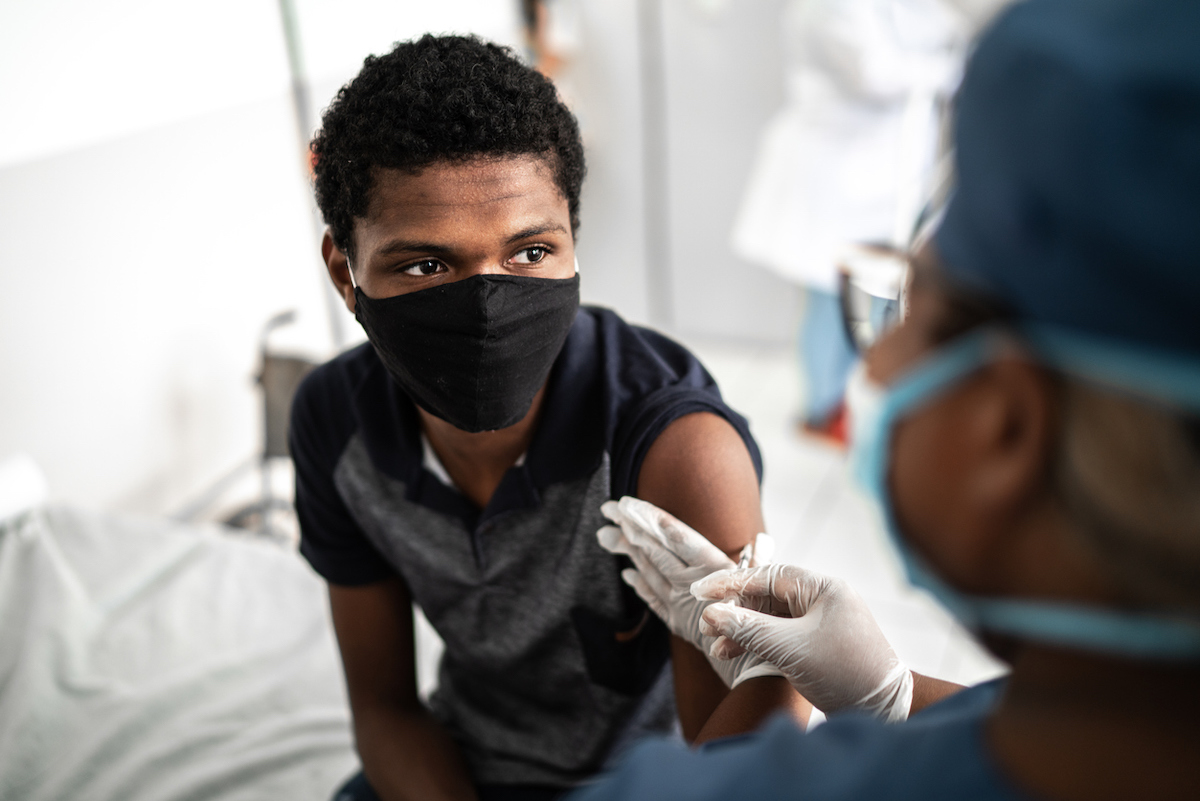
The CDC cites a "lack of data on the safety and efficacy of mRNA COVID-19 vaccines administered simultaneously with other vaccines," as the reason they recommend waiting at least 14 days before or after your coronavirus vaccine to get any other type of vaccine. Currently, both Pfizer's and Moderna's vaccines are nearly 95 percent effective after two doses, and not enough data has been done to know whether or not another vaccine administered at the same time would diminish this efficacy.
However, data is always evolving. According to the CDC, the agency "may update this recommendation" once there is more information on the safety and effectiveness of administering the COVID vaccine at the same time as other vaccines. And for more coronavirus news, The U.K.'s Top Scientist Has a Chilling COVID Warning for Americans.
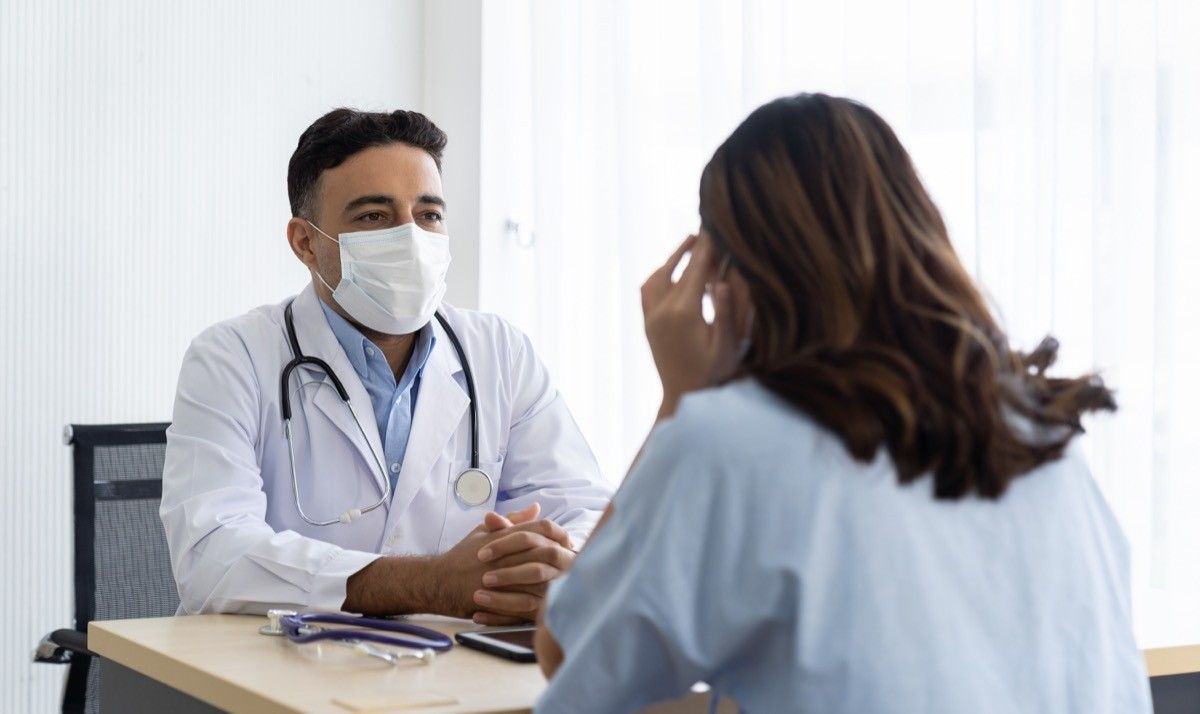
Mistakes happen, which may cause you to get the COVID vaccine and another vaccine within 14 days of each other. However, the CDC says that if this happens, "you do not need to be revaccinated with either vaccine." Instead, you should complete both vaccine series on their respective schedules. For instance, both COVID vaccines available have a two-dose schedule—Moderna's second dose is 28 days after the first, and Pfizer's is 21 days. And for more up-to-date information, sign up for our daily newsletter.
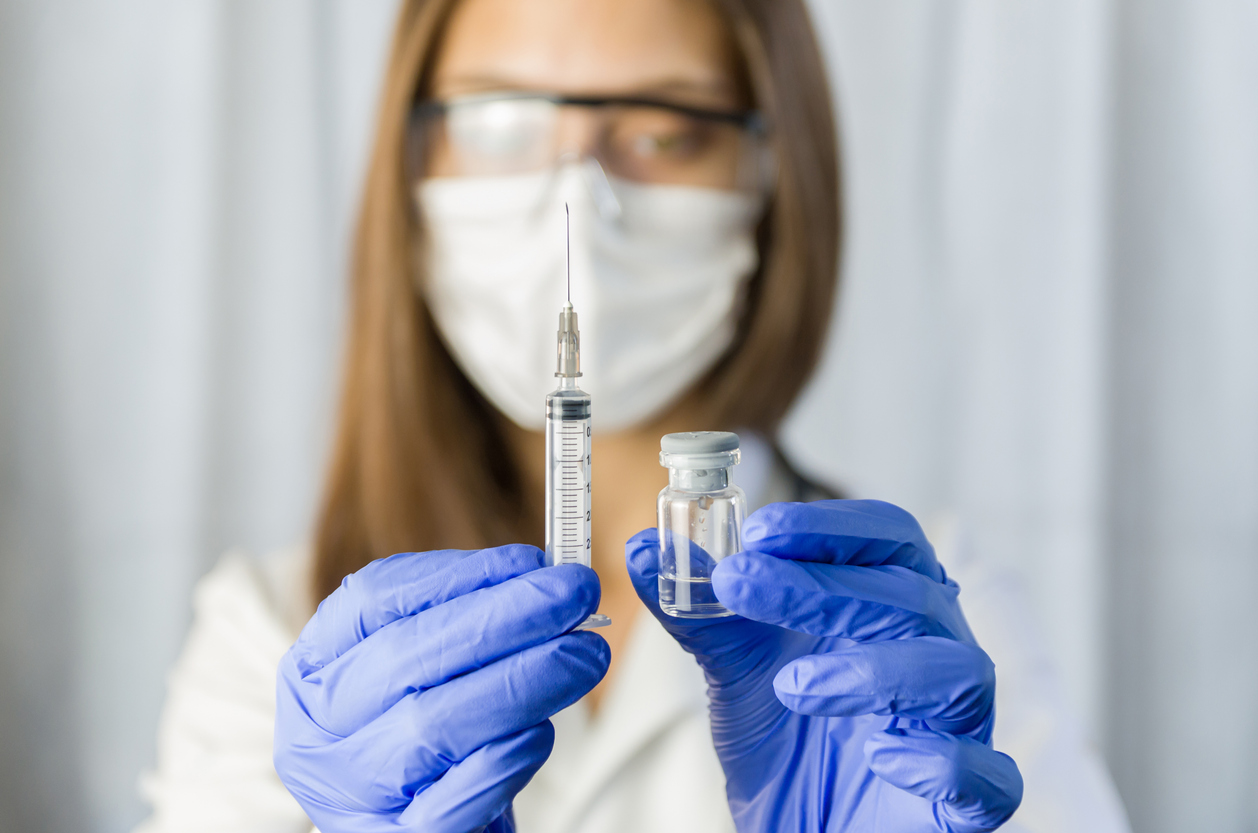
According to the CDC, there may be times when the coronavirus vaccine and other vaccines need to be administered within two weeks of each other. This would be in situations "where the benefits of vaccination are deemed to outweigh the potential unknown risks of vaccine coadministration," the agency explains. This can include—but is not limited to—tetanus vaccination for wound management, rabies vaccination after exposure, and measles or hepatitis A vaccination during an outbreak. The CDC says the COVID vaccine may also be given within two weeks of another in order to avoid barriers or delays, like for a long-term care facility resident or healthcare worker who received the flu vaccine right before entering the facility or getting hired. And for more on vaccine safety, If You Have These Vaccine Side Effects, Don't Get Another Shot, CDC Says.
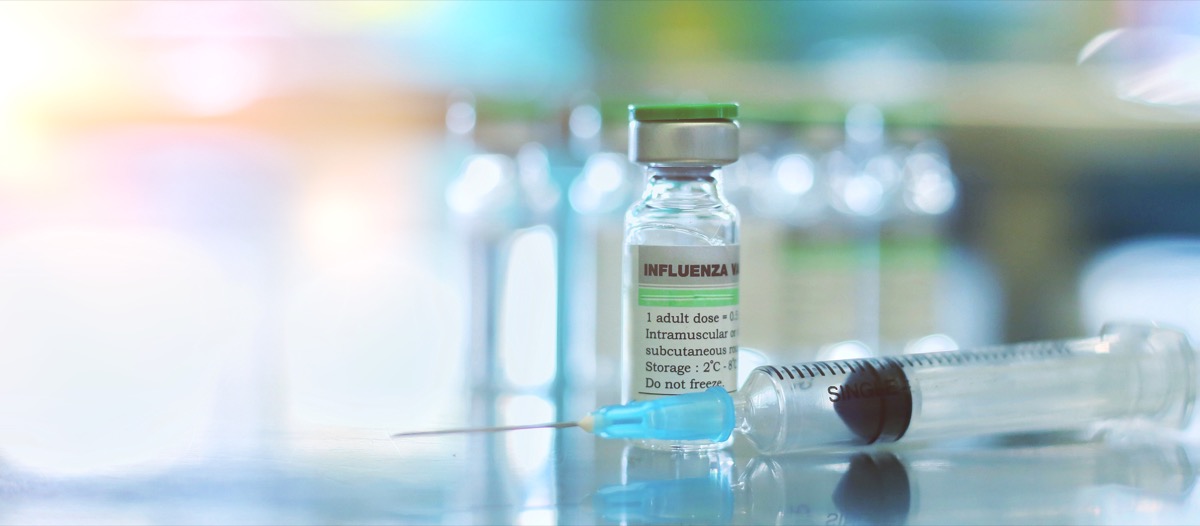
This stipulation doesn't mean you should skip some vaccines in favor of the COVID vaccine—especially when it comes to the flu vaccine. According to the CDC, the flu shot won't protect against the coronavirus, but it has been shown to "reduce the risk of flu illness, hospitalization, and death." In fact, the CDC has said that getting a flu vaccine amid the COVID pandemic may "be more important than ever," as it not only reduces your risk from the flu, but it also helps conserve potentially scarce healthcare resources that could be needed for coronavirus patients. And for more on life after vaccination, Dr. Fauci Just Confirmed You Can Do This After Getting Vaccinated.
Source: https://bestlifeonline.com/other-vaccines-covid-vaccine-news/